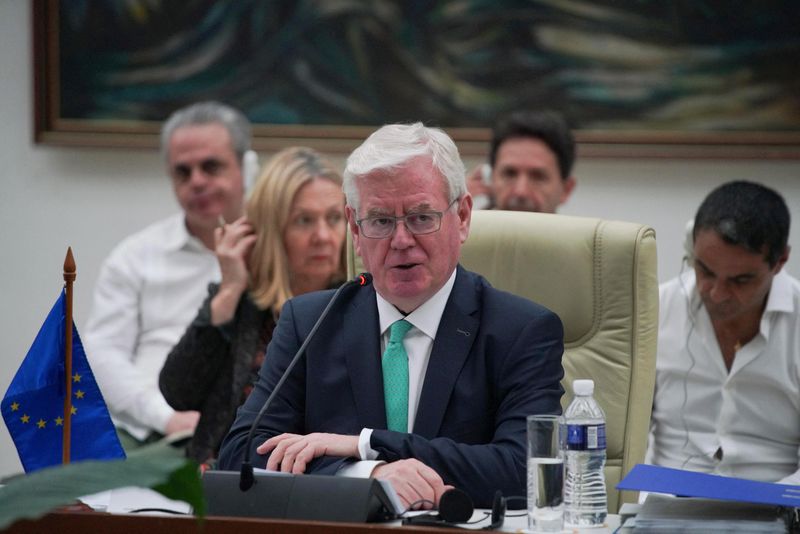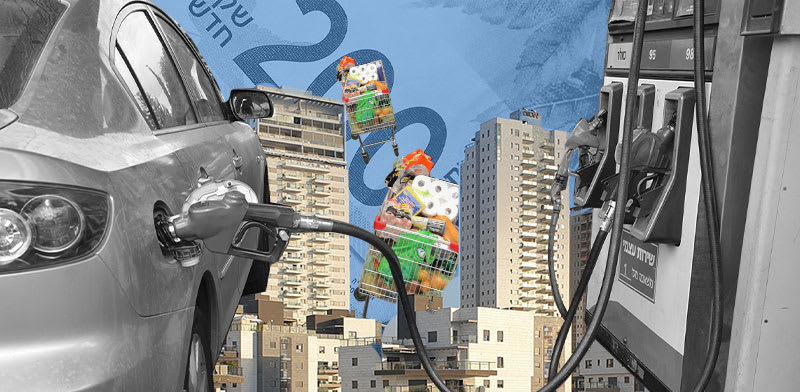[ad_1]

© Reuters. European Union’s Particular Consultant for Human Rights, Eamon Gilmore, speaks throughout a gathering with Cuban authorities in Havana, Cuba, November 24, 2023. REUTERS/Alexandre Meneghini
By Dave Sherwood
HAVANA (Reuters) -A particular European Union envoy mentioned on Friday that U.S. sanctions are worsening the human rights state of affairs in Cuba whereas reiterating the EU’s name on the communist-run authorities to launch prisoners detained throughout mass protests in July of 2021.
EU human rights envoy Eamon Gilmore mentioned bilateral talks with prime officers in Havana over two days had broached social and financial rights, but additionally, civil and political rights comparable to freedom of expression and the correct to meeting, or protest.
Gilmore instructed reporters the U.S. sanctions on Cuba, which sharply curtail monetary transactions, tourism and commerce, had clear impacts on Cuba’s economic system and society.
“It is hurting the human rights state of affairs as a result of it hurts folks on the bottom. The people who find themselves impacted are odd Cuban residents who’ve issue accessing meals, medicines,” Gilmore instructed reporters earlier than departing Havana late on Friday following a packed agenda of conferences.
“That is why the European Union, once we do impose sanctions, we goal the sanctions at people and entities that abuse human rights, reasonably than at common populations.”
The U.S. says sanctions are mandatory to carry the Cuban authorities accountable for rights violations and that it makes exceptions for humanitarian functions and packages to help the Cuban folks and personal sector.
Gilmore mentioned Cuba had made some progress on girls’s rights and gender equality, however doubled down on the bloc’s earlier criticisms of Cuba’s dealing with of protests in 2021, the biggest since former chief Fidel Castro’s 1959 Revolution.
America and the European Union have each critiqued Cuba’s response to these protests as repressive and heavy-handed. Rights teams say round 1,000 Cubans had been jailed for his or her political views following the demonstrations and a number of other subsequent protests.
Gilmore, who mentioned he met Cubans starting from President Miguel Diaz-Canel to family of jailed protesters, declined to touch upon whether or not he had mentioned a possible prisoner amnesty with Cuban officers.
“I do not need to get into the element of what we talked about when it comes to the prisoners, aside from to say the European Union has a long-standing name for the discharge of prisoners,” he instructed reporters.
Cuba denies it holds political prisoners and says these detained are responsible of assault, vandalism and sedition, amongst different crimes.
Tensions across the situation flared simply days earlier than Gilmore’s arrival after a prisoner died this week in Cuba, prompting a rebuke from the U.S. embassy, which mentioned it was “outraged” by the detainee’s loss of life.
Gilmore mentioned Cuban officers had offered some particulars to the EU delegation concerning the case, including that there’s “an investigation underway and we’ll know the outcomes sooner or later.”
Gilmore’s go to to Cuba, which concluded with a proper dialogue on Friday with prime Cuban officers on human rights, is a stipulation of a 2016 political and cooperation settlement between the bloc and the Caribbean island nation.
Gilmore described the European Union’s relationship with Cuba as “constructive however essential.”
[ad_2]
Source link







